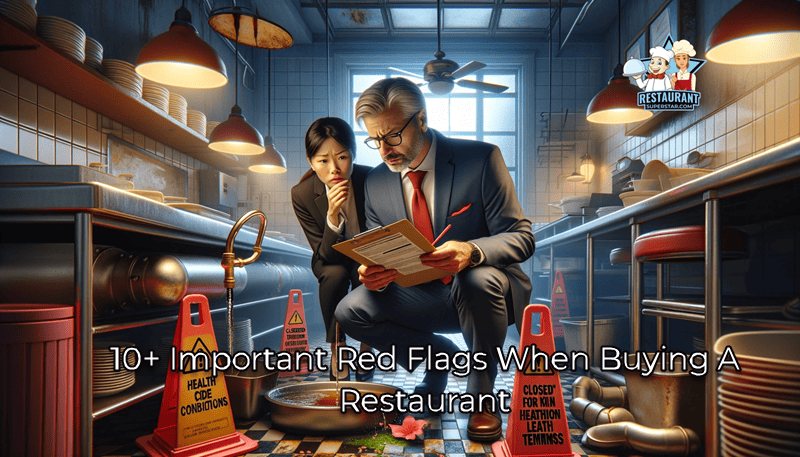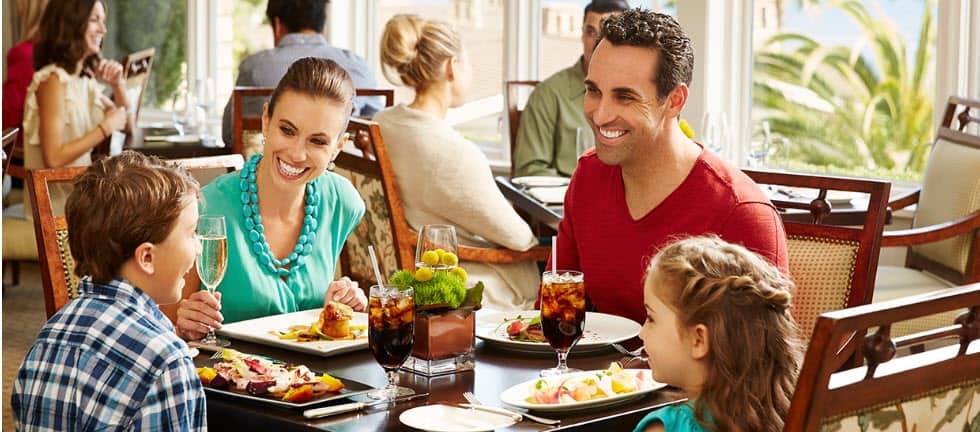How Much is a Liquor License in Florida? (2023 Info)
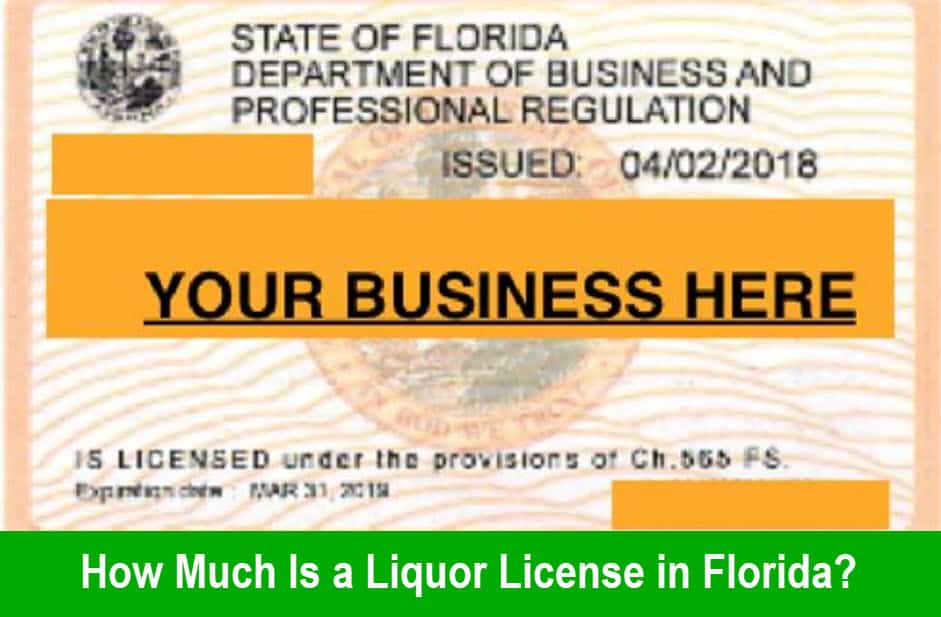
The response to the common query, “How much is a liquor license in Florida?” is multifaceted, depending significantly on the required license type or for which one qualifies.
The costs associated with acquiring a quota liquor license are determined uniquely by the supply and demand existing within each county.
Thus, It is crucial to approach this query with a nuanced and informed perspective. I am here to do just that, offering insight based on personal experience and professional expertise.
How Much is a Liquor License in Florida?
How much is a liquor license in Florida? Liquor license renewal costs can be between $28 and $1,820 yearly, with the latter being the norm in more populous countries. For instance, in counties with a population above 100,000, the annual cost of a 4COP (consumption on-premises) license is $1,820. However, as was previously said, liquor license costs depend on the type of license required and the company’s geographic location.
Based on the sort of license requested, you can also be required to pay additional license costs that are not based on county population. The application fee for quota licenses is $100 per application. Temporary licenses cost either $100 or one-quarter of the cost of a permanent appointment.
If you require a quota license, you could purchase one on the open market from a current holder. The price will change based on the demand. Applying to Florida for a transfer of ownership is the next step after buying a license.
Hello,
I’m Jeff, a restaurant consultant in Florida’s vibrant and diverse state. Having lived and worked here, I’ve gained extensive knowledge and experience in navigating the nuances of the restaurant and bar industry.
Today, I’d like to share my personal insights and informal advice with potential restaurant owners about a crucial step in opening a restaurant or bar in Florida – acquiring a liquor license.
Anyone with aspirations of owning a successful restaurant or bar in this beautiful state should be well-acquainted with the varying licenses required, mainly when it involves the sale of alcoholic beverages.
It’s integral to planning and budgeting to understand the types of liquor licenses available and their associated costs.
This knowledge is paramount as it impacts the operational framework and the establishment’s profitability.
The necessity to comprehend the cost of a liquor license in Florida leads us to our focal point for today: How much is a liquor license in Florida?
The quest to answer this seemingly straightforward question is integral for all aspiring restaurant owners aiming to thrive in the competitive Florida market.
The essence is to be well-informed, thus avoiding unnecessary pitfalls and ensuring your business starts on the right footing.
Having been immersed in the industry, I’ve encountered various scenarios and witnessed firsthand the repercussions of inadequate preparation and knowledge regarding liquor license acquisition.
I aim to guide you through this intricate process, offering a human touch and leveraging my experiential insights to provide valuable, real-world advice that’s 100% unique and tailored to your needs.
Whether you envision a cozy café, a sports bar, or an upscale restaurant, understanding the ins and outs of liquor licensing in Florida is imperative.
So, let’s delve deeper, explore the nuances, and discuss the associated costs in a manner that’s friendly, informal, and insightful, ensuring you are well-equipped to make informed decisions for your prospective establishment.
Costs Based on Type of Liquor License
Over my morning cup of Joe, I reflected on the countless times fellow business owners approached me with furrowed brows, asking about the maze of liquor licensing in our state.
Let’s break it down: Liquor licensing in Florida is differentiated by the kind of alcoholic beverages you plan to sell or distribute. It’s also affected by the availability of these licenses and the county where your business is located.
Please pull up a chair because I’ve broken up a little breakdown of your costs.
- Beer and Wine Licenses: The cost of these licenses varies based on the county’s population. For instance:
- 1APS (Beer Packages Sales) costs between $20 and $100, with an additional 40% of the fee.
- 1COP (Beer Consumption on Premise) ranges from $40 to $200, plus 40% of the fee.
- 2APS (Beer and Wine Package Sales) is priced between $60 and $140, with an extra 40% of the fee.
- 2COP (Beer and Wine Consumption on Premise) ranges from $120 to $280, plus 40% of the fee.
- Beer, Wine, and Liquor Licenses: The costs of these licenses also depend on the county’s population. On average:
- 3PS licenses (Package Sales) cost $1,365.
- 3APS licenses are priced at $1,170.
- 3BPS licenses come at $975.
- 3CPS licenses are $643.50.
- 3DPS licenses are available for $468.
- For Consumption on Premise:
- 4COP licenses are at $1,820.
- 5COP licenses come in at $1,560.
- 6COP licenses are priced at $1,300.
- 7COP licenses are available for $858.
- 8COP licenses cost $624.
- Club and Special Licenses: These licenses are designed for clubs and similar organizations. For example:
- Lodges/Club License (11C) for Beer, Wine, and Liquor Consumption costs $400.
- Special Club License (11CS) is priced at $1,750.
- American Legion Club License (11AL) is available at $500.
- Performance Arts License (11PA) is priced at $400.
- Private Golf Clubs License (11CG) for Beer, Wine, and Liquor Consumption costs $400.
- Caterer License (13CT) is priced at $1,820.
The Impact of County Population on License Costs
Let me paint a clearer picture: the county your restaurant calls home in Florida greatly determines your liquor license costs.
Yep, you heard me right.
Consider adjusting the license cost to the prospective revenue and customer footfall in different counties. More populous counties usually mean pricier licenses owing to the higher potential for sales and customer interactions.
But don’t let the notion of “one-size-fits-all” fool you when talking about liquor license costs in Florida. All aspiring restaurant owners must get a grip on the diverse licenses available, their corresponding costs, and the nitty-gritty of the application process.
Grasping these elements is not just about seamless business strategizing. Still, it’s also pivotal for adhering to Florida’s stringent regulations and removing any unnecessary legal hiccups.
Whether you envision a luxurious beachfront bar or a cozy little wine nook, having the proper license is the key to keeping those drinks pouring and your business booming.
Club and Special Licenses in Florida
Florida offers a range of clubs and special licenses for establishments that don’t fit the typical mold of bars, restaurants, or liquor stores.
These licenses cater to specific organizations and businesses, ensuring they can legally serve alcoholic beverages to their patrons or members.
Here, we delve into the details of these unique licenses, their costs, and why they’re pivotal for certain businesses.
Overview of Special Licenses and Their Costs
Florida recognizes that not all establishments can be bracketed into conventional categories. This acknowledgment has led to the creation of several special licenses, each tailored to fit the unique needs of different organizations. Here’s a breakdown of the available licenses and their associated costs:
- Lodges/Club License (11C): This license is tailor-made for lodges and clubs, giving you the green light to enjoy beer, wine, and liquor right at the premises. The annual fee for this license is $400.
- Special Club License (11CS): Catering to special clubs, this license is priced at $1,750 annually. It permits the consumption of beer, wine, and liquor on the organization’s premises.
- American Legion Club License (11AL): As the name suggests, this license is exclusive to American Legion Clubs, allowing them to serve beer, wine, and liquor. It comes at an annual cost of $500.
- Performance Arts License (11PA): Tailored for performance art venues, this license allows for the on-premises consumption of beer, wine, and liquor. It’s priced at $400 annually.
- Private Golf Clubs License (11CG): Golf clubs can avail of this license to serve beer, wine, and liquor to their patrons, ensuring a refreshing drink after a game. The cost is $400 each year.
- Caterer License (13CT): Meant for catering businesses, this license, priced at $1,820 annually, lets caterers serve beer, wine, and liquor at events.
For More, Watch: How to Get a Liquor License in Florida for $2500
Understanding the Importance of Special Licenses
Why is there a need for such specialized licenses, and why should businesses care? Here are a few reasons:
- Legal Compliance: Operating a business without the appropriate license can lead to hefty fines, legal actions, and potential closure of the establishment. By acquiring the correct license, businesses ensure they’re on the right side of the law.
- Tailored to Specific Needs: These licenses are customized to suit the requirements of various organizations. For example, a golf club’s needs will differ from a performing arts center. Florida’s licensing system recognizes these differences and caters to them.
- Enhanced Patron Experience: For many organizations, offering alcoholic beverages enhances the customer or member experience. For instance, theatergoers might appreciate a glass of wine during a performance, or golfers might enjoy a cold beer after a round.
- Revenue Streams: For numerous establishments, the sale of alcoholic beverages serves as a substantial revenue stream. Securing the appropriate license has the potential to amplify profits and ensure the longevity of the business.
Acquiring the right license is not just a matter of legal compliance; it’s a crucial step in ensuring the business thrives and offers its patrons the best possible experience.
Florida’s diverse range of clubs and special licenses ensures that various organizations, from golf clubs to performance art venues, can legally and effectively cater to their specific clientele.
Business owners should be diligent, understand which license aligns with their operations, and ensure they are adequately covered.
How to Register for a Florida Liquor License
Navigating the intricate waters of acquiring a Florida liquor license requires meticulous attention to detail and a thorough understanding of state regulations. Here’s a comprehensive step-by-step guide on registering for a Florida liquor license:
Determine the License Type
First and foremost, identify the specific type of liquor license that best aligns with your business model. The requirements and costs differ whether it’s a Beer and Wine License, an SRS Restaurant License, or a Quota License.
Business Registration
To proceed with an application for a liquor license, it is necessary to complete a few essential steps.
- Register Your Business: Ensure your business is registered with the Florida Division of Corporations. You can complete the registration process online through Sunbiz.org.
- Get an EIN: Get an Employer Identification Number (EIN) from the IRS. This nine-digit tax identifier is essential, and it’s a must if you’re going after a liquor license.
Compile Necessary Documentation
Ensure you have all the necessary documents ready. Typically, you’ll need:
- Proof of your EIN
- Business registration documents
- Personal identification of the business owner(s)
- Lease agreement or proof that you own the property for the business location.
Complete the Liquor License Application
Now, you’re ready to fill out the application:
- Application Form: Visit the Florida Division of Alcoholic Beverages and Tobacco website to access and download the appropriate application forms.
- Please provide Detailed Information: The application will request details about the business, its owners, and the physical premises. Make sure to provide accurate information, especially about any felony or alcohol-related convictions within the last five years.
Pay Application Fee
Submit the necessary fee associated with the type of liquor license you’re applying for. The cost may differ based on the license type and county of operation.
Await District Office Review
Once you’ve submitted your application, it will undergo a review by the district office. This ensures all information is accurate and all requirements are met.
On-site Inspection
After the district office review:
- Schedule an Inspection: The Florida Division of Alcoholic Beverages and Tobacco will schedule a time to inspect your business premises.
- Ensure Compliance: Make sure your establishment adheres to all state regulations. This includes the layout, health and safety standards, and storage facilities for alcoholic beverages.
Jurisdictional Considerations
- County Restrictions: Not all Florida counties allow liquor businesses to operate freely. It’s essential to familiarize yourself with local ordinances and restrictions.
- Zoning Laws: Some areas might have restrictions that prevent certain types of alcohol businesses. Check with your local zoning department to ensure compliance.
Await License Approval
You’ll receive your Florida liquor license after completing the on-site inspection and meeting all requirements. However, remember that this license requires annual renewal.
While obtaining a liquor license in Florida requires patience and a clear understanding of the process, the rewards of running a successful alcohol business in this bustling state are significant.
By following the steps outlined above and ensuring strict compliance with all regulations, entrepreneurs can ensure a smooth application process and set their businesses up for success.
As always, seeking guidance from experts or legal professionals experienced in Florida liquor licensing can be invaluable.
Types of Florida Liquor Licenses
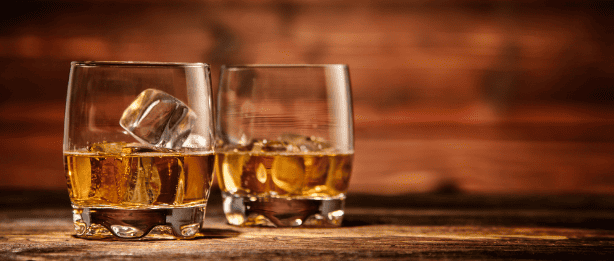
The Main Types of Liquor Licenses in Florida
Florida’s vibrant tourism and rich culture make it an attractive location for business owners aiming to capitalize on the alcohol and hospitality industry.
To facilitate this, the state offers a variety of liquor licenses tailored to different business models. Here’s a closer look at the main types of liquor licenses available in Florida:
SRS Restaurant License
A Special Restaurant Service (SRS) License, often referred to as an “S” License, is designed for restaurants with specific requirements:
- Eligibility: Restaurants must demonstrate that they derive 51% or more of their gross revenue from selling food and non-alcoholic beverages.
- Premises Requirements: The restaurant needs to comply with the seating capacity and square footage regulations set by the Florida Division of Alcoholic Beverages and Tobacco Bureau of Licensing. Adhering to these regulations is necessary to maintain compliance with the law. Let’s make sure everything is done properly and within legal boundaries.
This license mainly benefits restaurants that want to offer a full-service bar experience alongside their food services.
Quota License
Quota licenses are among the most coveted, primarily because they permit the holder to sell beer, wine, and spirits for consumption on and off the premises. Here’s what you need to know:
- Supply & Demand: The issuance of quota licenses depends on the county’s population. Every time the population increases by a specific number, a new quota license becomes available.
- Lottery System: Given their limited number, these licenses are often distributed through a lottery system.
Beer and Wine License
This type of license focuses solely on the sale of beer and wine:
- On-Premises Consumption: Businesses can sell beer and wine within their establishment.
- Off-Premises Consumption: Retailers can also sell sealed beer and wine packages for customers to take away.
The specific fees associated with this license vary depending on the county’s population. Still, they remain attractive for businesses not looking to offer spirits.
Miscellaneous Licenses
Florida offers a variety of other licenses to cater to niche requirements:
- Off-premises storage permits (OPS): Allows businesses to store alcoholic beverages off their premises.
- Sacramental wine permits (SWP): Specifically for religious entities that require wine for sacramental purposes.
- State-bonded warehouse permits (SBW): This license is for businesses that need to store large quantities of alcoholic beverages in state-bonded warehouses.
Separate Licensing for Selling and Distribution
An important distinction is that selling and distributing alcohol are considered separate activities in Florida.
A business looking to both sell alcoholic beverages at their establishment and distribute them to other businesses would require two distinct licenses.
Navigating the diverse range of liquor licenses in Florida can seem daunting.
However, with a clear understanding of the types available and their respective requirements, business owners can choose the one that aligns best with their goals.
Whether operating a high-end restaurant, a cozy wine bar, or a bustling nightclub, Florida offers the necessary licensing framework to ensure businesses operate within the bounds of the law while delivering a rich experience to their patrons.
Consulting with a liquor licensing specialist or legal counsel can clarify and streamline the application process.
How do you get a liquor license in Florida?
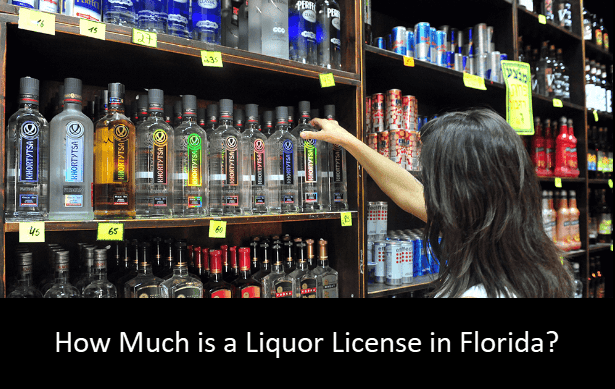
New Florida Liquor License Application Process
Acquiring a liquor license in Florida involves a detailed application process to ensure all potential liquor businesses operate within the state’s legal guidelines. Let’s explore the intricacies of this application process.
Preparing for the Application Before diving into the Application:
- Identify the License Type: Depending on your business model and location, determine which liquor license is appropriate for you, from Beer and Wine Licenses to the Quota License.
- Ensure Business Registration: Register your business with the state of Florida and obtain an Employer Identification Number (EIN) from the IRS.
Completing the Application
The Application requires detailed information:
- Citizenship Status: Specify the legal status of the business owner(s), whether a U.S. citizen, permanent resident, or another status.
- Description of the Premises: Provide a thorough location description, including size, layout, and facilities.
- Conviction Records: Disclose any felony or alcohol-related convictions for all business owners within the past five years.
- Owner Details: List names, contact information, and roles for all individuals associated with the business.
District Office Review
After submitting your Application:
- Wait for Feedback: The district office will review your Application. This process verifies the accuracy of the information provided. It ensures that the business model aligns with the type of license requested.
- Possible Queries: The district office might contact you for further details or clarifications.
On-site Inspection
One of the crucial steps before license approval is the on-site inspection:
- Scheduling: Once your Application passes the district office review, the Florida Division of Alcoholic Beverages and Tobacco will schedule an inspection.
- Compliance Check: The inspection will verify that your business location meets all state regulations. This includes reviewing storage facilities, ensuring compliance with health and safety standards, and verifying that the layout aligns with the provided description.
- Recommendations: In some cases, inspectors might provide feedback or recommendations to make the premises compliant. Ensure you address these before the final approval.
Importance of On-site Inspection
The on-site inspection is vital for multiple reasons:
- Safety and Health: It ensures businesses maintain the highest safety and hygiene standards, protecting patrons and the public.
- Regulation Compliance: The state wants to ensure that alcohol is stored, displayed, and sold in a manner that meets Florida’s regulations.
- Business Integrity: Through this process, businesses demonstrate their commitment to operate ethically and legally.
Navigating the new Florida liquor license application process might seem daunting. Still, with due diligence and attention to detail, it’s entirely manageable.
If you want reliable info, go for the official resources from Florida’s Division of Alcoholic Beverages and Tobacco. And if you need clarification on the steps, getting expert advice is a good idea.
Requirements and Timeframe for Obtaining a License
If you’re considering starting a business in Florida that sells or distributes alcohol, you must familiarize yourself with the process and timeframe for obtaining a liquor license. Let’s delve into the specifics.
Process of Approval from the Florida Department of Revenue
Before you can even begin the liquor license application process, you must get approval from the Florida Department of Revenue.
This approval ensures that you’re in good standing with tax regulations and will be responsible for collecting sales and using tax on your liquor sales.
All businesses engaged in the sale or distribution of tangible personal property, such as alcohol, are obligated to register for sales and use tax as per the Florida Department of Revenue requirements.
Registration for Sales and Use Tax as a Prerequisite
In Florida, sales and use tax registration is a necessary precursor to the liquor license application.
The rationale behind this is to guarantee that all businesses selling tangible goods, including alcoholic beverages, are compliant with the state’s tax laws.
This registration ensures that the state receives the appropriate taxes from alcohol sales.
You can proceed with the liquor license application once you’ve registered your business and acquired the sales and use tax permit.
This is a critical step because, without this registration, the Florida Division of Alcoholic Beverages and Tobacco (ABT) will not even consider your application.
Estimated Time to Obtain the License
While the actual time can vary depending on several factors, such as county regulations, application volume, and specific business needs, a general timeline can be outlined:
- Preparation and Submission of Application: 1-2 weeks. This includes gathering the necessary documents, filling out the forms, and submitting them to the Florida ABT.
- District Office Review: After submitting your application, the district office will carefully review it within 2-4 weeks. This review aims to ensure completeness and compliance with all requirements. They’ll ensure all information is accurate and you’ve met the preliminary requirements.
- On-site Inspection: 1-2 weeks. After the district office review, an on-site inspection of the premises will be scheduled. This is to ensure that the physical location of your business meets all state regulations and is suitable for liquor sales or distribution.
The entire process, from the initial application to the issuance of a license, can take anywhere from 4 to 8 weeks. However, this is a general estimate, and specific cases might differ.
To streamline the process, ensure you’ve meticulously gathered all necessary documents, filled out the application forms correctly, and ensured your business location is up to standard.
Delays can occur due to discrepancies or missing information.
And remember, this is a state-regulated process. Patience is essential to ensure you follow all the steps thoroughly and accurately. Always refer to official state resources or consult a liquor licensing specialist to help guide you through the process.
Florida’s Dry Counties
Selling alcoholic beverages with more than 6.243 percent alcohol by volume in a county where the sale of intoxicating liquors, wines, or beers has been voted down is illegal, according to Section 568.02 of the Florida Statutes. Lafayette, Liberty, Madison, Suwannee, and Washington are the current five Florida counties to which this statute applies.
Can you rent a liquor license in Florida?
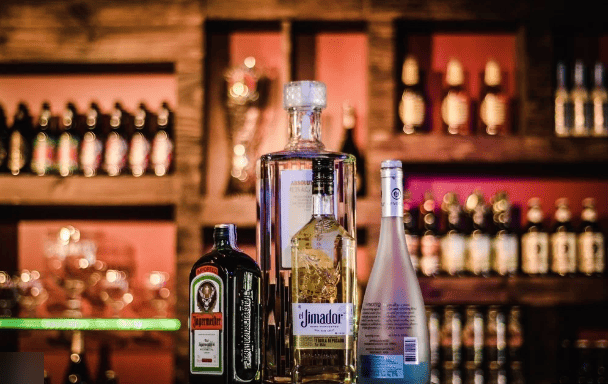
That’s not the case. Alcoholic beverage license rentals are not addressed under the governing rules.
Given the possible compliance issues, you may consult an alcoholic beverage attorney before contemplating any proposals involving the rental or leasing of a liquor license.
Such transactions may violate state regulations that forbid entities with undisclosed interests to hold a permit. The compliance risk, however, may change based on the specifics of the proposed arrangement.
How do I get a liquor license loan?
A liquor license loan is created when a lender contributes 70–80% of the license’s loan to value. The borrower then continues to repay the loan over a lengthy period, usually up to 10 years.
How do I get a temporary liquor license in Florida?
Based on the sort of license you’re seeking, the costs for a temporary permit might range from $100 to $455. A $100 application fee per application is required to apply for a license through the quota licensing lottery, and it must be sent along with your lottery application at the time you use it.
Florida liquor licenses can be challenging to obtain based on the country you operate in. The number of county residents determines the available permits, and the Quota Beverage License Drawing Entries are reset yearly.
When it comes time for the quota drawings, a new quota license is created and logged with the others whenever a county’s population rises by 7,500.
This quota lottery, run by the Department of Business and Professional Regulation, is a good way to acquire one of the licenses listed below. Your other, more unlikely, alternative is to find a preexisting company willing to sell you its liquor license.
FAQS
How much is a liquor license in Florida in 2022?
In 2022, the entry fee of $100 per entry must be submitted with each FORM DBPR ABT 6033 filing. For entries sent in by mail or submitted online, the entry fee may be paid by credit card or cheque payable to the Division of Alcoholic Beverages and Tobacco.
How much is a bar license in Florida?
The type of license you have and the location of your business both affect the license fees. The cost of an annual license varies from $28 to $1,820, depending on the size of the county. For instance, a 4COP (consumption on-premise) license costs $1,820 annually in counties with a population exceeding 100,000.
To sum up, You can anticipate paying the following fees: Wine, Beer, and Liquor Package Sales -3APS licenses are $1,170;3CPS licenses are $643.50, 3BPS licenses are $975, and 3DPS licenses are $468; 3PS licenses are $1,365.
How much is a local liquor license?
The cost for a local liquor can be said to be $48.00. The Initial Class E licenses in Florida (including learner’s permits) also cost $48.00, Class A commercial driver’s licenses cost $75.00, and additional endorsements cost $7.00. A valid ID card costs $25.00. Most regional Tax Collector offices additionally levy a service fee of $6.25.
Do you need a liquor license to sell beer in Florida?
Distributors of alcoholic beverages in Florida must get licensed by the Division of Alcoholic Beverages and Tobacco’s Bureau of Licensing. This formal procedure is essential to understand the relevant laws and rules for the kind of company and the right in issue.
What is a 4COP liquor license in Florida?
For a restaurant with at least 2,500 square feet and seating for at least 150 people, a 4COP SFS permit is available for on-premises consumption only of beer, wine, and spirits/hard liquor. “SFS” stands for “special food service.”
How much is a liquor license in Tampa, Florida?
The yearly charge for the most comprehensive liquor store license is $1,365. All alcoholic beverages, including wine, beer, and spirits, will be legally sold exclusively for off-premises consumption.
How much does a liquor license cost in Jacksonville, Florida?
The price of an alcohol license in Jacksonville, Florida, varies depending on the requirements of each establishment. The cost of an alcohol license in Jacksonville, Florida, is determined by a company’s industry, regional service areas, and perhaps other elements. Still, for an average rate, it could be around $392.00.
How much is a liquor license in Broward County?
The annual fee for SFS licenses is $1,820.00, which can be obtained directly from the Division of Alcoholic Beverages and Tobacco.
However, choices are still accessible if you are not eligible for one of these special restaurant licenses.
How much does a liquor license cost in Pinellas County, Florida?
The annual charge for the most comprehensive liquor store license is $1,365. All alcoholic beverages, including wine, beer, and spirits, will be legally sold exclusively for off-premises consumption.
How much is a liquor license in Hillsborough County, Florida?
This license costs $280 a year to maintain. Beer may be sold under this license for on-site and off-site consumption in taverns and restaurants. Clients are permitted to drink on-site. However, only beer can be served at your business; no wine or spirits are allowed.
How much is a liquor license in California?
Based on the sort of license, different application fees apply. Applications for general permits cost between $945 and $16,560, depending on whether they are priority or non-priority licenses. The price range for non-general tickets is $105 to $945. Individual-to-individual transfers cost between $105 and $1,305 in transfer fees.
Additionally, as for the license application’s typical processing time, it is said that most processes last 45 to 50 days on average. A person-to-person license transfer typically takes 75 days, whereas an original takes 90 days.
How much is a liquor license in New York?
How much is a liquor license in New York? The fee for a restaurant-brewer license is $5,850, with an additional $200 filing fee. For on-premises liquor, the fee amounts to $4,352. While we are aware of the application process duration in California, we are curious about the timeframe and requirements for New York.
Most retail establishments and all manufacturers are qualified to apply for a temporary retail operating permit or a temporary manufacturing permit, respectively, which permits many applicants to be open.
At the same time, the application is being reviewed, with the review process currently taking between 22 and 26 weeks for most types of applications.
How much is a liquor license in New Jersey?
The local issuing authority must receive a $200 filing fee, payable to the Division of ABC, at the time of application. A charge equal to 10% of the annual licensing cost is also due to the municipality by the licensee or person who purchases the license.
Additionally, the laws in New Jersey that govern getting a liquor license are pretty demanding. The number of permits is capped because they are distributed according to population. Due to the cap on the number of permissible claims, many liquor licenses in New Jersey are purchased from holders of active permits.
How much does a liquor license cost in Michigan?
Along with the paperwork you submitted for your request for a license transfer or new Specially Designated Merchant license, you must also pay a $300 conditional licensing fee, present proof of your financial stability (such as liability insurance), and offer a copy of an executed property contract.
Further, the local governmental unit’s legislative body must provide a recommendation to the applicant (city council, village council, or township board). A fresh application for a Class C permit. In addition, it may make a notation of its support on the Form for Approval by Local Authorities (Form LCC-106).
How much is a liquor license in Pennsylvania?
Licensees must pay liquor license fees ranging from $125 to $700 as part of the yearly license renewal or validation procedure and in conjunction with the approval of certain new applications, depending on the kind of license and the size of the municipality where the permission is situated.
As required by law, the PLCB reimburses the towns that hold the liquor licenses for a part of the licensing costs paid by PLCB-approved licensees twice a year. The returned license payments can be used, but the municipality sees fit to fund specific local needs.
Conclusion – How Much is a Liquor License in Florida?
To wrap it up, find out what licenses you require when you receive a beer and wine right or a liquor license in Florida. Each municipality and county has its specifications.
Retail establishments typically require zoning, signage, building, and alarm permits. Those who deal in alcoholic drinks must also get a license from the Federal Bureau of Alcohol, Tobacco, and Trade (TTB).
This step may be completed digitally using the TTB’s official website. If you’re selling alcoholic drinks, you’ll also need a license from the Federal Bureau of Alcohol, Tobacco, and Trade (TTB). To complete this step online, go to the TTB’s official website.
Before opening its doors, you are advised that any establishment that sells wine, beer, or distilled spirits must obtain TTB permission. If you run multiple stores, approval is required for each site. Additionally, you must maintain accurate receipt records.
That should be all for now, till next time, stay safe.
Jeff Smith is a Restaurant Consultant with over 20 years of hospitality experience ranging from server to owner and general manager. He focuses on Restaurant POS technology as well as restaurant marketing. Check out our world-famous restaurant resources page for a comprehensive offering of hand-picked resources and tools to help your business. You can also check out some of our other restaurant business articles.

